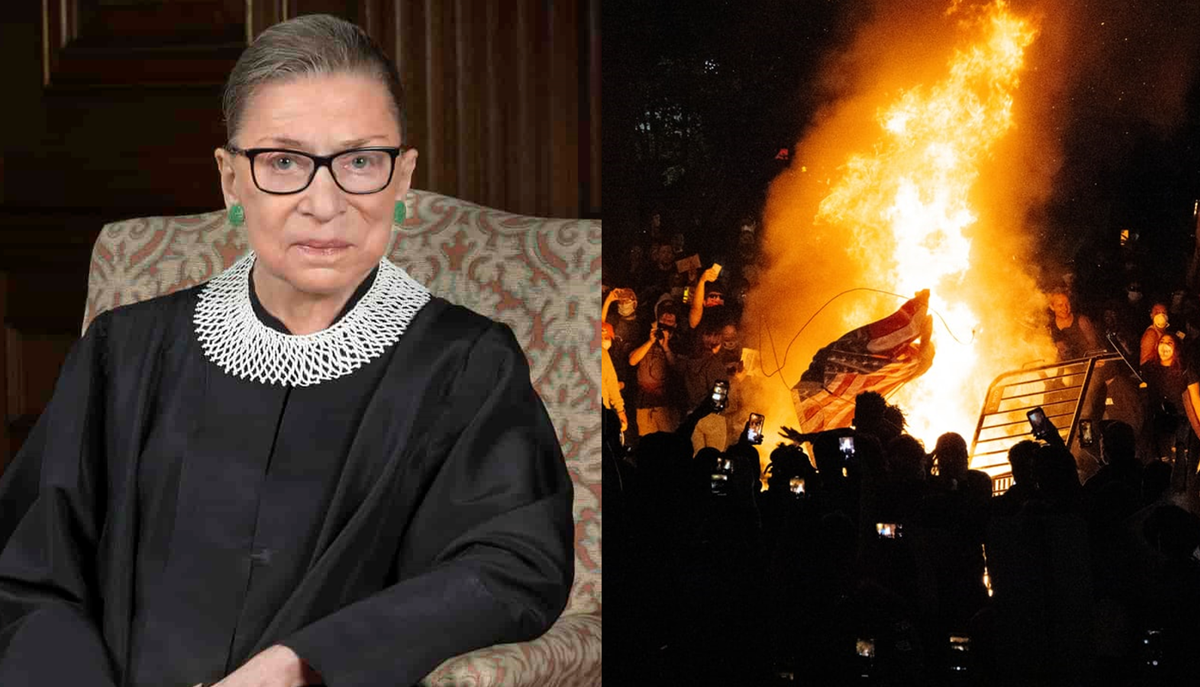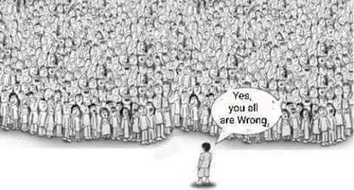“Burn it all down.”
“Civility is dead.”
That is how leading political voices have been responding to the death of Supreme Court Justice Ruth Bader Ginsburg at age 87 since it was announced on Friday.
Others have voiced concern that America’s social fabric—already frayed by the presidential election, the pandemic, the lockdowns, and the riots—may be ripped asunder by Ginsburg's passing.
Could the passing of just one octogenarian judge tip the body politic into a death spiral? The fact that it’s even plausible is a sign of something fundamentally wrong with politics in America. More on that later.
The Powder Keg
First, why the extreme reactions?
Whether President Trump appoints a replacement before the election in 42 days may have momentous consequences. If the election is close and contested, the Supreme Court may end up deciding it, as it did in the 2000 Bush v. Gore decision.
Also, if Trump appoints a justice and then loses the election, the presumably Democratic victor won’t be able to fill the vacancy. This may be decisive for many Supreme Court cases. Many believe Roe v. Wade is on the line.
Another contentious issue is that, in 2016, the Republican-controlled Senate, led then as now by Mitch McConnell, refused to vote on a Supreme Court nomination by outgoing President Barack Obama, leaving the vacancy to be filled by Trump. Yet, McConnell recently announced his intention to hold a vote on Trump’s forthcoming nominee.
Some Republicans say the two cases are fundamentally different. Others don’t care either way, and argue that the recent ruthlessness of the enemy calls for an “anything goes” political approach (thus the “civility is dead” remark, tweeted by a prominent conservative writer).
Democrats see the appointment attempt as rank hypocrisy that justifies extreme counter-measures, including packing the Court if they win the presidency. Others have called for (more) riots in retaliation. (Thus the “burn it all down” tweets.) CNN's Don Lemon remarked that, "We’re gonna have to blow up the entire system.”
Don Lemon: “We’re gonna have to blow up the entire system.”
— Ian Miles Cheong (@stillgray) September 22, 2020
Chris Cuomo: “I don’t know about that.” pic.twitter.com/pGT9WZEv0q
The situation is not just a powder keg, but a powder keg wheeled into an already burning building. The country is polarized and on-edge. Both sides consider the stakes to be life-or-death. And circumstances threaten to produce an ambivalent electoral outcome in which neither side is willing to accede or negotiate. Prominent figures and publications have warned that a constitutional crisis could be looming. In such a crisis, the political street violence we’ve already seen could grow much worse.
The Root Problem
Regardless of who is right regarding the appointment, the election, or even Roe v. Wade, how we got to such a precarious place is clearly indicative of one thing.
The presidency, the Supreme Court, and the federal government in general have come to matter far too much to Americans. The central government has grown too big and important. It has too much inescapable power over too many lives. There is too much on the line for any given presidential election and Supreme Court appointment.
This isn’t the way the American system was designed to work. The federal government was supposed to have strictly limited powers, leaving the rest to the states. Instead the “states” have been demoted to mere provinces and the “federal” government has swollen into a super-state.
Ironically, this greater “unity” is what is dividing American society. The more power is centralized, the more all-encompassing, bitter, and mutually destructive will be the struggle over its possession, like Tolkien’s Middle Earth descending into war over the “One Ring.”
Conversely, the less power is centralized, the more people are able to escape what they perceive as injustice and “vote with their feet” for a better jurisdiction. This incentivizes governments to be better (or at least less bad) in order to keep and attract taxpayers.
Many scholars have traced the rise of liberty and modern prosperity to such “polycentricity” and “jurisdictional competition.”
In a more polycentric country, there would be far less motivation to “burn it all down” if a Supreme Court appointment or presidential election doesn’t go your way.
Centralized power is unraveling the social fabric, demonstrating that common government is not what civilization depends on in the first place.
What truly weaves the social fabric is commerce and other forms of voluntary cooperation.
While centralized power politics creates discord (even among family members, as we are increasingly seeing in this election), voluntary commerce and cooperation is what creates a harmony of interests, even among strangers: across state lines, party aisles, cultural divides, and international borders.
"In one aspect civilization is the habit of civility,” said historian Will Durant. To give civility up for dead is to give up on civilization itself. Before discarding scruples and stooping to the level of our worst enemies, let’s try giving up on the never-ending tug-of-war over centralized power that is deteriorating civility and endangering civilization in the first place.





